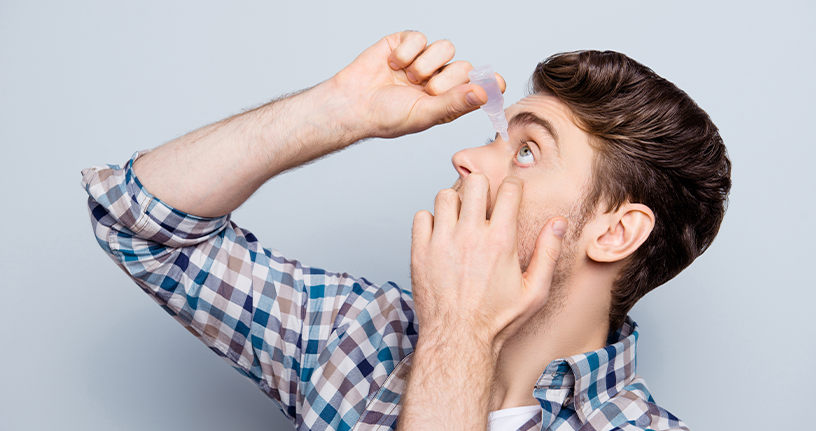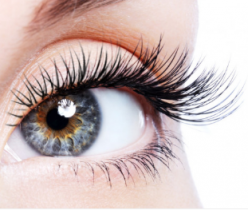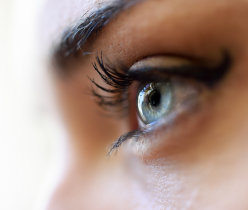The watery eye, also known as tearing, is a condition with an overflow of tears onto the face, often without a clear explanation. It happens when there is either a product of tears in excess or insufficient tear film drainage from the eyes. Tears overflow onto the face when they cannot drain through the nasolacrimal. Although tears are essential to sustain the eye’s front surface health and clarity, overproduction can impair vision. Additionally, watery eyes can affect people of any age, but they tend to affect older adults and children less than twelve months the most.
Causes Of Watery Eyes
Causes of watery eyes include an allergic reaction to mould, dust, or dander, conjunctivitis, blockage of the tear duct, scrape on the eye, bright light, irritation, blepharitis, inward growing eyelashes, conjunctivitis, something in the eye, eyelid turning inward or outward. Increased tearing sometimes happens with eyestrain, yawning, or laughing. One of the most common causes of excessive tearing is dry eye conditions. Dry eye cause discomfort in the eye, which stimulates the body to produce too many tears. It can happen to either or both eyes. However, the condition can be successfully addressed. It just needed quality eye drops to be used, and here, we have brought you the best eye drops for watery eyes, which are recommended by doctors and are very safe for the users.
Best Eye Drops For Watery Eye
Itchy, watery eyes can be frustrating, but what’s even more problematic is arriving at your local pharmacy or an online source to find so many over-the-counter ophthalmic solutions to choose from. How do you know which eye drop works well for you? Experts break down eye drops into three categories based on their active components.
- Allergy drops – When you develop an allergic reaction to pollen dust or animal dander, your body releases chemical histamine. This chemical tells your body that allergens have entered, and in response, your body triggers classic allergy symptoms: itchy eyes, runny nose, and watery eyes.
Usage – Allergy eye drops are believed to work by blocking the action of histamine in your body altogether. These drops block the response of the body to allergens. Antiallergic ophthalmic solutions commonly contain an antihistamine that helps to prevent your body from releasing histamines. These allergy drops reduce redness, itching, and watering caused due to seasonal allergies. Use as needed, as per instructions provided by your doctor. You can choose reliablerxpharmacy.com to buy online medicines and the best antiallergic eye drops.
- Anti-redness drops – These eye drops shrink the blood vessels on the eye’s surface. This process is medically termed vasoconstriction, and that makes the redness resolve. Typically, these eye drops contain allergy relievers and mild lubricants.
Usage – As the name suggests, these anti-redness eye drops effectively reduce the redness of irritated eyes. They are best for occasional use. But be cautious; overuse may make your eyes used to them and worsen your condition, especially if you use them regularly for the long term. Using this reliever medicine regularly for chronically red eyes may bring more serious eye conditions that need to be treated with the help of an ophthalmologist.
- Artificial tears – If dry eyes feel extremely itchy, artificial tears can relieve you. Dry eye is common, especially as we get older. While people who wear contact lenses often develop irritation and dryness, women may experience dry eye after menopause due to certain hormonal changes. Dry eye symptoms are scratchy, gritty, burning eyes or blurring, especially while reading books or watching screens. But contrary to what most people think, tearing is a common sign of dry eyes. Tears are the reaction to dry eye, but these tears are too watery and unable to lubricate the eye well. The main goal of an artificial eye drop is to keep the eyes moist and lubricated. They are formed to mimic the way real tears function in the eye. Artificial tears have electrolytes and lubricants that help to keep eyes lubricated and healthy.
Usage – You can use them to relieve dry eye conditions and ease contact lens irritation or mild allergies.
Takeaway
When looking for eye drops, it is important to choose one with antihistamines as they are effective in treating eye symptoms about 50 per cent of the time. If you are dealing with seasonal or pet allergies that the doctor has well documented, using an over-the-counter ophthalmic solution as needed is appropriate. But if you develop an unexpected eye irritation after an upper respiratory tract infection or exposure to someone with a red eye condition. In that case, there is a chance of developing a viral or bacterial infection. Eye problems that are not improving with over-the-counter solutions are quickly worsening. Or are often occur along with severe pain or vision change or loss and should be evaluated by the ophthalmologist.




